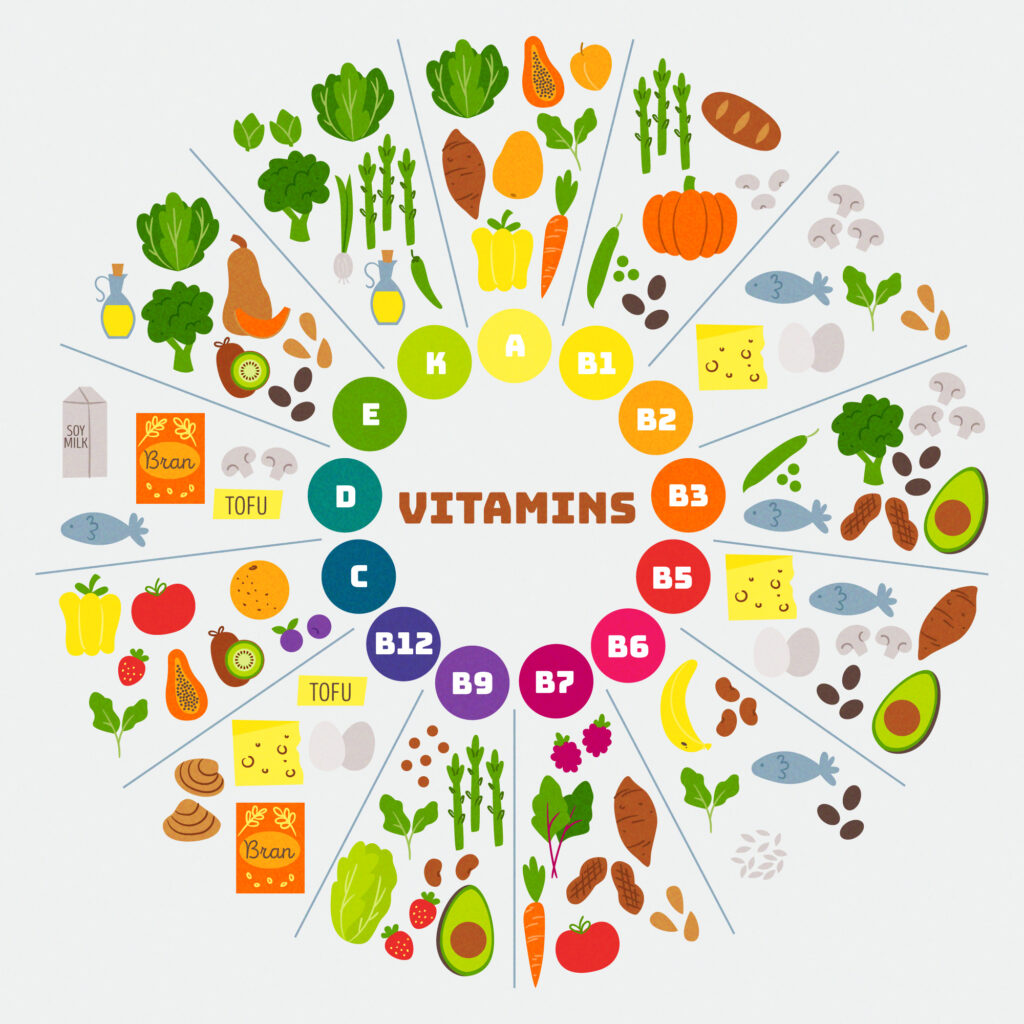
When it comes to understanding the Ultimate Guide to Fat-Soluble Vitamins: Benefits and Usage Explained from A to K – 15 Essential Insights, there’s a lot to cover! This comprehensive guide aims to provide you with everything you need to know about these vital vitamins. We’ll delve into the benefits, optimal dosage, natural food sources, and safety considerations. Stick around as we uncover:
- Understanding the Benefits of Each Fat-Soluble Vitamin
- Optimal Dosage: How Much of Each Vitamin A to K Do You Need?
- Sources of Fat-Soluble Vitamins: Foods Rich in A, D, E, and K
- Health Benefits Unveiled: What Each Fat-Soluble Vitamin Does for You
- Safety and Considerations: Guidelines for Supplementing Fat-Soluble Vitamins
Are you ready to dive in? Let’s get started!
Understanding the Benefits of Each Fat-Soluble Vitamin
Fat-soluble vitamins, including Vitamin A, D, E, and K, perform essential roles in our bodies. Vitamin A benefits are paramount for vision and immune function. It’s also a key player in maintaining healthy skin and cellular communication. Vitamin D is particularly famous for its role in calcium absorption and bone health. Without it, our bones would be brittle and weak. Moving on to Vitamin E, which boasts powerful antioxidant properties that help combat free radicals, protecting our cells from damage. Lastly, Vitamin K is essential for blood clotting and bone metabolism, making it indispensable for overall health.
Optimal Dosage: How Much of Each Vitamin A to K Do You Need?
Getting the right dosage for each of these essential vitamins is crucial. For Vitamin A, the recommended daily intake is 700-900 micrograms for adults. Vitamin D requirements can vary based on sun exposure, but generally, 600-800 IU (International Units) per day is suggested for most adults. Vitamin E is typically recommended at around 15 milligrams per day. As for Vitamin K, 90-120 micrograms per day should suffice for adults. It’s essential to get these amounts to reap the maximum health benefits.

Sources of Fat-Soluble Vitamins: Foods Rich in A, D, E, and K
Finding natural sources of fat-soluble vitamins is easier than you might think. Vitamin A can be found in foods like carrots, sweet potatoes, and spinach. Vitamin D is primarily obtained through sunlight, but can also be found in fortified foods like milk and fatty fish. For Vitamin E, look to nuts, seeds, and green leafy vegetables. And Vitamin K is abundant in foods such as kale, broccoli, and Brussels sprouts. By incorporating these dietary sources of vitamins A, D, E, and K, you ensure a natural and holistic approach to meeting your nutritional needs.
Health Benefits Unveiled: What Each Fat-Soluble Vitamin Does for You
The health benefits of these vitamins are truly remarkable. Vitamin A supports eye health and boosts the immune system. Vitamin D not only fortifies bones but also improves mood and supports heart health. Vitamin E stands out for its antioxidant properties, reducing the risk of chronic diseases by neutralizing free radicals. Finally, Vitamin K is indispensable for blood clotting and bone health, ensuring your body functions smoothly. Understanding these vitamins’ roles offers a clearer picture of why they are critical to incorporate into your daily diet.
Safety and Considerations: Guidelines for Supplementing Fat-Soluble Vitamins
While fat-soluble vitamins are incredibly beneficial, it’s crucial to approach supplementation with caution. Overconsumption can lead to toxicity since these vitamins are stored in the body’s fat tissues and liver. For instance, excessive Vitamin A intake can cause symptoms like dizziness, nausea, and even liver damage in severe cases. Similarly, high doses of Vitamin D can result in elevated calcium levels, leading to potential heart problems and kidney stones. It’s essential to follow recommended daily intake guidelines and consult with a healthcare provider before starting any new vitamin supplements to ensure safety.
Vitamin Deficiency Symptoms: What to Look Out For
Recognizing vitamin deficiency symptoms can be life-saving. A lack of Vitamin A can lead to vision problems, especially night blindness, and an increased susceptibility to infections. Vitamin D deficiency is often linked to bone pain and muscle weakness, and in severe cases, it can cause rickets in children and osteomalacia in adults. Vitamin E deficiency, though rare, can result in nerve and muscle damage, leading to coordination issues. Lastly, a Vitamin K deficiency can manifest through easy bruising, excessive bleeding, or blood clotting issues. Being aware of these symptoms can guide you to seek professional advice early on.
Natural Sources vs. Supplements: Making the Right Choice
When it comes to obtaining fat-soluble vitamins, your best bet is always natural sources. Foods naturally rich in Vitamin A, D, E, and K offer a more balanced intake of these nutrients along with other beneficial compounds. For instance, a diet rich in green leafy vegetables, nuts, seeds, and fatty fish can help you meet your vitamin needs without the risk of overdose. However, in cases where dietary intake isn’t sufficient or specific health conditions require it, supplements can be an excellent option. Always opt for high-quality supplements and consult with a healthcare provider to find the right balance tailored to your needs.
Recommended Daily Intake: A to K
Knowing the recommended daily intake of each fat-soluble vitamin helps ensure you’re getting the right amounts for optimum health. As previously mentioned, adults need about 700-900 micrograms of Vitamin A, 600-800 IU of Vitamin D, 15 milligrams of Vitamin E, and 90-120 micrograms of Vitamin K daily. These recommendations serve as guidelines to help you achieve a balanced intake. For tailored advice, always consider discussing your specific needs with a healthcare professional.
“Understanding what each vitamin does and how much you need can make a significant difference in your overall well-being.”
By following these insights, you can effectively manage your intake of fat-soluble vitamins, reaping their many health benefits while avoiding potential pitfalls.
Understanding the Ultimate Guide to Fat-Soluble Vitamins: Benefits and Usage Explained from A to K – 15 Essential Insights is your gateway to optimizing your health. From recognizing the immense benefits of each vitamin to knowing the optimal dosage and the best dietary sources, you are now equipped with the knowledge to make informed choices. Remember to pay attention to safety considerations and watch for deficiency symptoms to ensure you’re on the right track. Whether you choose natural food sources or high-quality supplements, striking the right balance is key to reaping the full benefits of these vital nutrients. Stay informed, stay healthy, and let these fat-soluble vitamins enhance your well-being every day.